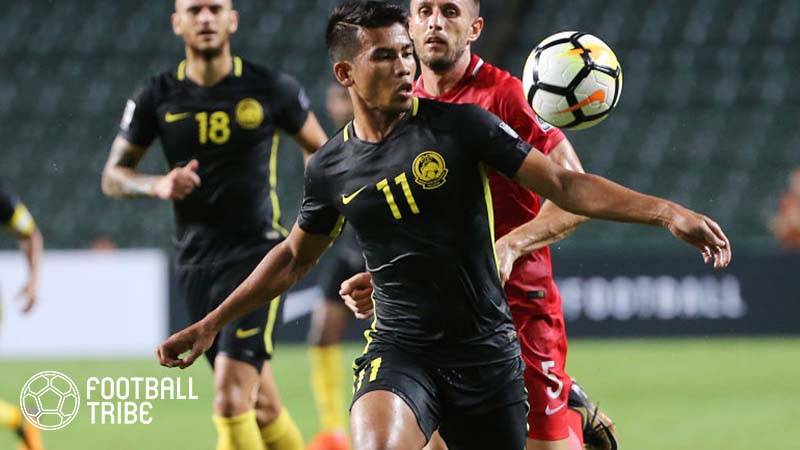
The 2021 AFF Championship has already finished its second matchday. Based on what they’ve learned from Matchday 1, several teams have tried their best in improving their game. There were teams who ended up playing better, and there were also teams who ended up playing worse. In the end, the second matchday of the 2021 AFF ended with four teams as winners, just like the first matchday. But there were some interesting statistics that happened on Matchday 2 of the AFF. What are they?
Set-Piece as a Key to Win the Game
After Matchday 1 which ended up with four of the eleven goals coming from set-piece situations, we would like to think that free-kick scenarios will be an important key to breaking the deadlock of a match. And now, as if to emphasize the idea, all of the national teams that played in the second matchday try to turn every free-kick they got into a dangerous situation for their advantage. The result? Seven of the fifteen goals came from set-piece scenarios in the second matchday.
The match between Indonesia against Cambodia by far was the match with the most goals coming from set-piece situations. Two of the four goals that Indonesia scored last night started with corner kicks, both of which were executed brilliantly by their center-back Rachmat Irianto. On the other hand, Cambodia managed to convert one of their corner kicks into a goal by their center-back Yue Safy, and another goal from a direct free kick by substitute Prak Mony Udom. Safawi Rasid from Malaysia, Hariss Harun from Singapore, and Amin Nazari from the Philippines also came up with a goal from set-piece situations.
Those statistics show that set-piece situations will be the key to winning any match in this tournament. If all the teams cannot find their own solution to defend against set-piece situations as soon as possible, it may cost them their opportunity to win the tournament.
Cambodia’s Dominance
While they improved greatly in 2021, nobody could have guessed that Cambodia would give a tough time for three title contenders in Group B; Indonesia, Malaysia, and Vietnam. However, after Cambodia’s first two matches against Malaysia and Indonesia, everyone had to reconsider what they thought about Cambodia in this tournament. While they still could not get any points from those two teams, Cambodia managed to dominate the game against both of them.
They forced Malaysia to get only 43% ball possession in the first match and Indonesia with 45% of the ball in the second match. They were playing short passes from their goalkeeper until their forward with high confidence that frustrated both Indonesia and Malaysia’s players. Even if they still made several mistakes, they managed to prevent many dangerous situations for their goalkeeper.
The only thing they have to improve are their defensive strategies against set-piece and counter-attack situations. Also, while dominating the game, they need to be more confident in front of their opponent’s goalkeeper. There were several times in the match against Indonesia where they fail to land a decisive blow past Syahrul Fadil in the Indonesia goal. But all in all, Cambodia has the potential of becoming the dark horses of this year’s AFF Championship, and if they manage to play like this consistently, sooner or later they will be a force to be reckoned with in Southeast Asia.

First Hat-trick in the Tournament, First Hat-trick for Malaysia in the AFF since 1996
In the other Matchday 2 game, Malaysia talisman Safawi Rasid showed his qualities when Malaysia played against Laos. He scored a hat-trick to help Harimau Malaya destroy Laos and retain their position in the first place of Group B. That hat-trick was the first hat-trick in the tournament this year and placed Safawi as the top scorer in the AFF so far with 4 goals.
But while it was a big achievement for the Johor Darul Ta’zim winger, it was a historical event for Malaysian football. The hat-trick was Malaysia’s second hat-trick in the AFF since Kalasigaram Sanbagamaran did that in the 1996 edition of the tournament against the Philippines. Interestingly enough, Sanbagamaran’s hat-trick was the first hat-trick in the AFF history. At the end of that year’s AFF Championship, Malaysia ended up as runners-up after being defeated by Thailand.
Even though the two events are not related to each other, it will be a great motivation for Malaysia, and Safawi Rasid especially, to better what Sanbagamaran and his colleagues had done 25 years ago by winning this year’s AFF Championship. It will also be a good foundation for Malaysia to build upon before they have to face their rivals, Indonesia and Vietnam, for the rest of their matches in the group phase. They need to win both matches to ensure the first position in the group and avoid a strong opponent in the semifinals. It will be interesting to see how far Safawi’s achievement will motivate Harimau Malaya for the rest of the tournament.







